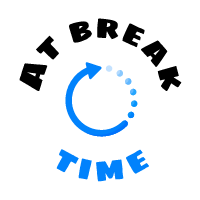Stressors are events, circumstances, or situations that can cause stress in individuals.
They can vary greatly from person to person, as what may be stressful for one person may not be stressful for another.
Here are some common stressors that many people experience:
Work-related stress
Job pressure, excessive workload, long working hours, demanding deadlines, lack of job security, conflicts with colleagues or superiors, or the fear of unemployment can all contribute to work-related stress.
Financial stress
Struggling with financial difficulties, such as debt, unemployment, or the inability to meet basic needs, can be a significant stressor for individuals and families.
Relationship issues
Conflicts with family members, romantic partners, or friends can be a major source of stress. Difficulties in communication, lack of support, or the breakdown of relationships can all contribute to emotional strain.
Academic pressure
Students may experience stress due to the demands of academic performance, exams, assignments, or the pressure to meet expectations from teachers, parents, or themselves.
Health-related stress
Dealing with chronic illness, injury, or the health issues of loved ones can be extremely stressful. The uncertainty, physical discomfort, financial burden, or emotional strain associated with health problems can contribute to stress.
Life changes
Major life transitions, such as moving to a new home, starting a new job, getting married, or having a child, can be exciting but also stressful. These changes often come with additional responsibilities, adjustments, and uncertainties.
Personal expectations
Setting high standards and unrealistic expectations for oneself can lead to stress. The pressure to excel in various areas of life, such as career, relationships, or personal achievements, can create a constant sense of pressure and anxiety.
Time pressure
Feeling constantly rushed and overwhelmed by a lack of time can be a significant stressor. Balancing multiple responsibilities and obligations can create a sense of urgency and strain.
Traumatic events
Experiencing or witnessing a traumatic event, such as a natural disaster, accident, violence, or loss of a loved one, can lead to acute stress reactions and potentially post-traumatic stress disorder (PTSD).
Environmental factors
Living in an environment with excessive noise, pollution, overcrowding, or other unfavorable conditions can contribute to chronic stress.
It’s important to note that these stressors can have cumulative effects, and individuals may experience stress from multiple sources simultaneously.
Managing stress involves recognizing these stressors, developing coping mechanisms, seeking support when needed, and engaging in self-care activities.

